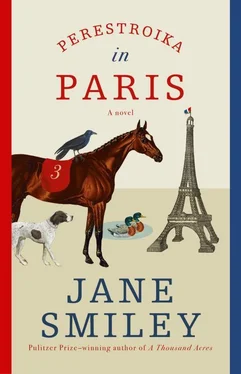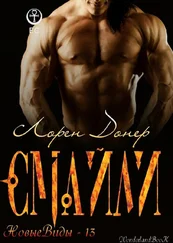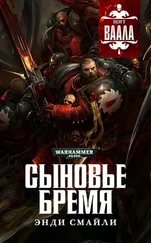She, Madeleine, and Rania had taken it very hard—Rania hadn’t wanted Delphine to agree to train the new horse, a gelding named Jesse James, but Delphine could not do without the income, and it had seemed too sad to do as Madeleine wished—as Madeleine offered to pay for—to hold the stall, empty, bedded, waiting for the filly’s return. The race Paras had won was not prestigious—it was not as though, at least at this point, she was worth hundreds of thousands of euros—but, unlike many owners, Madeleine didn’t care about that. What all three of them cared about was the filly, soon to be a mare, Paras herself. As a trainer, Delphine thought she might have been harder-hearted than Rania or Madeleine. Training racehorses was a business; you had to accept that anything could happen and still you had to get on with it. And she had gotten on with it, but she couldn’t give up the conundrum. Paras was Delphine’s very own cold case.
Of course, the other mystery was what had happened to Rania’s handbag, which might have disappeared at the same time—when Rania came back to the stall from the bathroom and found the door open, found the grooming box tipped over, found Paras gone, she had forgotten about everything but her phone, even though her handbag was full of money—she had put her whole week’s salary down on the race and won her bets. Paras had been something of a long shot—12–1—but the horses that ran second and third had been even bigger long shots—30–1 and 50–1—and since she had bet on all three of them, she had won a number of euros that Delphine shuddered to calculate. But Rania had been much more upset about losing the horse than about losing her winnings, and Delphine had not punished her for being careless—when you have to pee, you have to pee, everyone knew that. What everyone did not know was, what in the world had happened? The handbag had never turned up—Rania’s keys and credit card and phone had never turned up. Only her little mirror lay there on the gravel outside the stall, glinting in the deepening dusk—a clue, but a clue that no one could understand.
Without telling Madeleine, Delphine had spent a hundred euros of her own to call an animal psychic. They had spoken on the phone; the woman, who was in the west of Ireland, had taken her credit-card information before “casting about.” Delphine had given the woman—Áine was her name—all of Paras’s particulars, including color, date of birth, cowlicks, racing history, breeding—and at her end of the line, Áine had cast about so long that Delphine had thought the line was dead and said, “You there? You there?” Finally, Áine said that Paras was walking down the street, looking into shopwindows, but since she herself had never been to Paris and didn’t know French, she could not say what was written over the shops—all she knew was that the windows were dark, but that Paras seemed healthy and active. These remarks were so ridiculous that Delphine simply put them out of her mind and swore that she would never be fooled again. Walking down the street, looking into shopwindows, indeed! What was she looking at? Designer platform heels? A hundred euros down the drain! But even so, she found a single grain of comfort in the fact that a voice—a rather deep, warm, and lilting Irish voice—had not said that the horse was dead. She pulled her hat more tightly down over her head, and marched, shovel in hand, across the road to the stables. She still had to shovel the snow away from the door to the storage barn where she kept the little tractor.
The horses saw her coming. None of them talked about Paras much—only six of them had known her, and she had not been one of those fillies who are friendly and agreeable to everyone. When she disappeared, the horses from England (there were two of these) assumed that she had been sold away. The horses from France said, if she had been sold, why were the humans so upset? Jesse James, the single, solitary horse from America, asked if she’d been running in a “claiming race,” like they had back where he had come from, where, if you ran, another owner could pay some money and take you straight to his barn, but his accent was very strange, and no one answered him. According to the other horses, he was related to Paras—he had Northern Dancer everywhere in his pedigree—but because his grandsire was Nijinsky, he was big and brawny, a chestnut. Today, though, no one was worrying about Paras—it was cold, their blankets were dirty from lying down in the muck, the hay was a little dry. When all was said and done, they were Thoroughbreds—a day inside, a day walking, was not a good day.
Raoul was surprised at the snow, too—in his long life, he had never seen this much snow around Paris. Benjamin Franklin’s lap was a dome of snow, and upon his bald head was a little white hat. An icicle hung from the tip of his nose, and even the back of his chair had a white railing. Raoul had huddled in his nest all night long, and he was hungry, but snow wasn’t bad for your diet. Seeds dropped with the cold and were very nicely visible against the white. The trick was to wait until the sun had come out and melted the top surface. Later in the day, the top surface would freeze again, and an agile raven could hop gently around upon it, extracting chilly nutrients here and there. Also, anything that a human tossed landed visibly on the snow and was easy to see from above. This time of year, humans were rather careless, because they were rushing here and there, buying an abundance of things for what they called vacances de Noël. Some of these things fell out of their pockets and their bags. This time of year, Raoul allowed himself the occasional palmier, some pieces of meringue, even a stray nougat. Young humans, especially, tended to cry for something, eat a bit of it, toss it away, and cry for something more. A discreet Corvus corax could follow a small human down a street, picking up whatever he or she tossed, and be full in a short time. But he had to be discreet—if too many other Aves saw him, they would all be after the goods, and then the humans would chase them off.
The animals didn’t know it, but Étienne did know it: this was the Feast of the Immaculate Conception. His great-grandmama had been up since before the sun, preparing herself for her long walk to the Mass. She had put on two pairs of socks, and some sturdy boots, gloves as well as mittens, leggings, a long wool dress, two sweaters, and her coat. Now she wrapped her head in a scarf she had knitted twenty years ago (four-ply cashmere—she could afford that then). A piece of lace, which she would wear during the service, was in her pocket. Étienne stood quietly as she patted him over to make sure that he, too, was suitably clothed. He was. It was a long walk at any time of the year, many times longer than the walk to the shops, but as far as Madame de Mornay was concerned, that only meant that you left plenty of time to get there. They opened the door and went outside. Étienne had cleared the step and the walk to the gate. Now he took along his little shovel, and as his great-grandmama moved down the walk, which had been not perfectly cleared by the city, he scraped bits of snow and ice to either side, widening her path. He was a good boy. The very few people who were out glanced at him and smiled.
It was to be a long Mass, and Étienne and Madame de Mornay got there in good time. Étienne left his small shovel outside, escorted his great-grandmama to her usual spot, about halfway down the center aisle. She did not kneel, but after she took off her coat, gloves, and scarf, set them aside, and put on her piece of lace, she sat quietly, with her hands in her lap, and closed her eyes to say her prayers. Madame de Mornay knew all the prayers there were in the book—she said them aloud even though she could not hear herself. She had once been a faithful churchgoer, in spite of her griefs, but now she could only manage it three times in the year—the Feast of the Immaculate Conception, Christmas Day, and the Pentecost. Étienne took a seat behind her. When the church was almost full, and it seemed as though the Mass was about to begin, Étienne eased himself out of the pew, and out the back door. He estimated that he had two hours at least, and he ran for the Champ de Mars as fast as he could go, only stopping at his great-grandmama’s house to pick up a bag of things that he’d been saving for a long time.
Читать дальше










